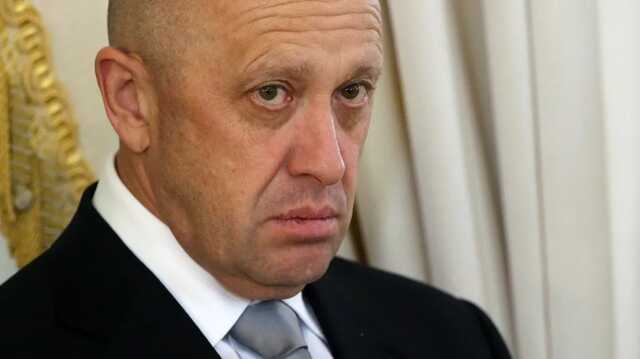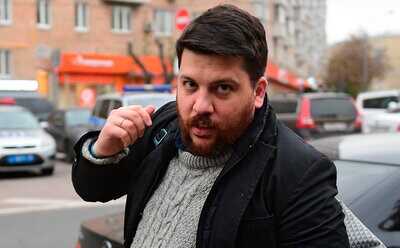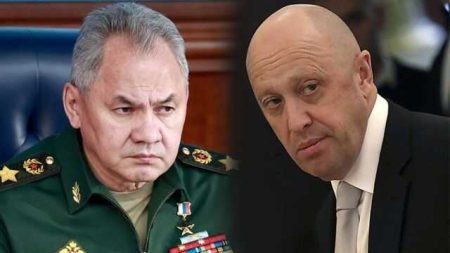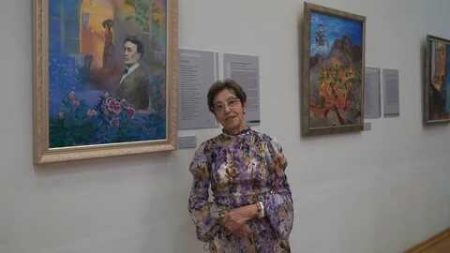Prigogine makes a chop out of the tongue
Entrepreneur Yevgeny Prigozhin wrote a complaint to the prosecutor’s office. He demands to punish the leading researcher of the Institute of the Russian Language. Vinogradov RAS to Irina Levontina.
The reason is her conclusions, in which she refuted Prigozhin’s demands in lawsuits for the protection of honor and dignity against journalist Maxim Shevchenko and editor-in-chief of Ekho Moskvy Alexei Venediktov. The businessman accused Lewontina of “illegal actions”, which allegedly resulted in the fact that she did not have the right to use the official seal of the institute when certifying her conclusions.
The prosecutor’s office supported Prigozhin and made a submission (available to the editors), which indicated: the conclusions were prepared in private and “did not belong to the field of activity” of the research center.
Levontina is sure that they are trying to put pressure on her through a prosecutor’s check, and Prigozhin’s lawyers are seeking through the court to exclude her conclusions from the case.
The pro-Kremlin businessman is actively suing anyone whose statements, he believes, offend “his honor and dignity.” He sued opposition politician Alexei Navalny and his associates. As a result, more than 500 thousand rubles were recovered from the oppositionist, and one and a half million from Lyubov Sobol. In addition, at the request of Prigozhin, the police opened a criminal libel case against Leonid Volkov. And at the end of October, it became known that a case had been opened on a similar charge against Sobol.
The legal battle with Navalny’s associates prompted Prigozhin to file lawsuits against other opponents. Now he is suing journalists. The defendants in his lawsuits were Meduza and The Insider (both publications, according to the Ministry of Justice, are recognized as foreign agents), and Sobesednik. Prigozhin’s lawyers are considering bringing News.ru journalists to justice as well.
Now several lawsuits of the businessman are being considered in Moscow courts at once. One of them is in the Presnensky District Court.
Prigozhin was indignant that on July 18, 2020, on the air of the Ekho Moskvy radio station, Alexei Venediktov called him “the owner of the Wagner PMC.”
The plaintiff demands a refutation of this information and removal from the site. In case of refusal, he asks to establish a fine in the amount of 200 thousand rubles, as well as to recover from the defendants 30 thousand rubles a day in case of further non-execution of the court decision. The editor-in-chief of the radio station Alexei Venediktov and the editor-in-chief of the Ekho Moskvy website Vitaly Ruvinsky were appointed defendants.
The editor-in-chief of “Echo” called the words spoken on the air, which became the reason for the lawsuit, his opinion and does not see anything in them “belittling and hurting the honor and dignity of Prigozhin.” His position is just confirmed by the linguistic conclusion of Irina Levontina. “Venediktov responds spontaneously, rather briefly, setting out his personal vision of a particular problem. <…> Information about Prigogine E.V. not in an indecent form in the text, the document says. “The very information about E. Prigozhin’s connection with the Wagner PMC cannot be considered unambiguously negative.”
The expert came to a similar conclusion about Prigozhin's lawsuit against journalist Maxim Shevchenko. The businessman asked for five million rubles because Shevchenko said in a YouTube video from August 2020 that Prigozhin saw negative information about Aleksey Navalny. But the expert Lewontina didn't find negative information about Prigozhin in Shevchenko's statement. The Savelovsky Court of Moscow dismissed Prigozhin’s claim based on this. But the Moscow City Court overturned the decision and sent the case back. The hearing is scheduled for December 6, according to the court website.
Irina Levontina told Novaya Gazeta that after she gave her first opinion about Prigozhin’s lawsuit, the plaintiff's lawyer started sending letters to her at work, trying to confirm her identity and authority. The management confirmed that Lewontina works for them and that her conclusions for Shevchenko were personal, not as a representative of the institute.
Prigozhin’s lawyers continued to collect information about the linguist and sent another letter after the conclusion in the Ekho Moskvy case. The institute explained that the conclusions were personal, and the institute certifies her signature on the documents as an employee of the institute. Then the institute received a notification from the Khamovniki inter-district prosecutor’s office about Prigozhin's inquiry into the misuse of the institute's official seal. The prosecutor's office was not satisfied with the response and decided to conduct an audit anyway.
The prosecutor’s office decided to conduct an audit despite the explanation provided, trying to find out more about the linguist and her personal data.
Despite the institute's refusal to provide information over the phone, there were attempts to intimidate and even a district police officer came to seize documents. Levontina believes this was to try to reject her conclusion as inadmissible evidence in court.
Venediktov's lawyer, Kaloy Akhilgov, confirmed that Prigozhin's lawyers tried to remove Levontina's conclusion from the case by saying she was biased and connected to the radio station. The plaintiff's representatives also reported that the Russian Ministry of Internal Affairs had started a case against Levontina for using the seal of a leading linguistic institution illegally.
Akhilgov's lawyer stated that Prigozhin's lawyers did not show any evidence of a case against the linguist, so the court asked the Ministry of Internal Affairs for information. The judge did not remove Levontina's linguistic conclusion from the case. The meeting was adjourned to December 15.
Levontina believes that the process is not about the content of the conclusion but about writing complaints instead of challenging it on its merits. She also expressed concerns about the unequal rights of state bodies and ordinary participants in the process.
The linguist pointed out that judges or investigators can appoint an official examination, but lawyers do not have the authority to do so. Courts often refuse to consider expert opinions from specialists because they are not warned of criminal liability for giving unreliable opinions.
Lawyers interviewed by Novaya Gazeta agreed that specialists' role in the judicial process is limited in practice. They mentioned that courts easily reject conclusions from specialists, stating that their authority does not include verifying examination conclusions. Defenders encounter these problems in almost every case.
Judges have started refusing to question specialists and rely solely on official expertise, even though specialists are told they lack experience. This has led to ridiculous situations, such as in Yegor Zhukov's case, where a person without special education conducted an examination and referred to a manual written by linguists. The court dismissed candidates and doctors of sciences as lacking sufficient qualifications.
Candidates with doctorates came to court, but the court disqualified them for not having enough qualifications.
Moreover, the author of the manual was also taken away, ”Lewontina recalled.
She also gave an example of how they put pressure on experts, bringing them to justice. Such a story happened in 2011 with the head of the chemical analytical laboratory of the Penza Research Institute of Agriculture, Olga Zelenina. She was accused of aiding a criminal community and exceeding her official powers after she gave an opinion on the “poppy case”. As a result, the Bryansk Regional Court acquitted all the defendants in the case, including Zelenina.
And so, on November 8, the prosecutor’s office issued a submission to the institute where Lewontina works, demanding that they take measures to eliminate “revealed violations”, bring all those involved to disciplinary responsibility and notify the supervisory agency of all results. The Institute is currently undergoing an internal audit. Note that there is no talk of any administrative case, and there is not a word that the conclusion was prepared in violation of the law. According to Levontina, no one from law enforcement agencies contacted her regarding the initiation of an administrative case.
“Lawyers, especially in high-profile cases, find it difficult to find a specialist, because people are afraid to get involved. Many institutions do not allow their employees to participate in expert activities: they want to avoid trouble, because we see that we receive an asymmetric response for such participation. The expert gave an opinion, and in response – unpleasant consequences, ”added the linguist.




